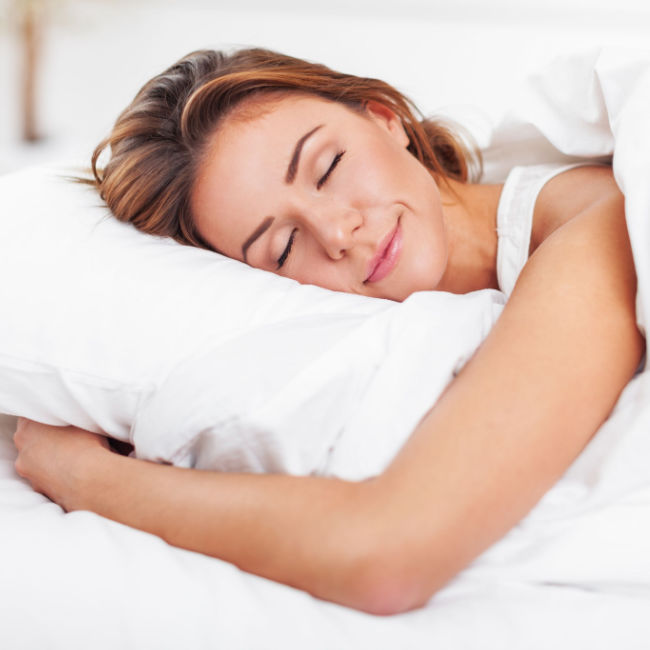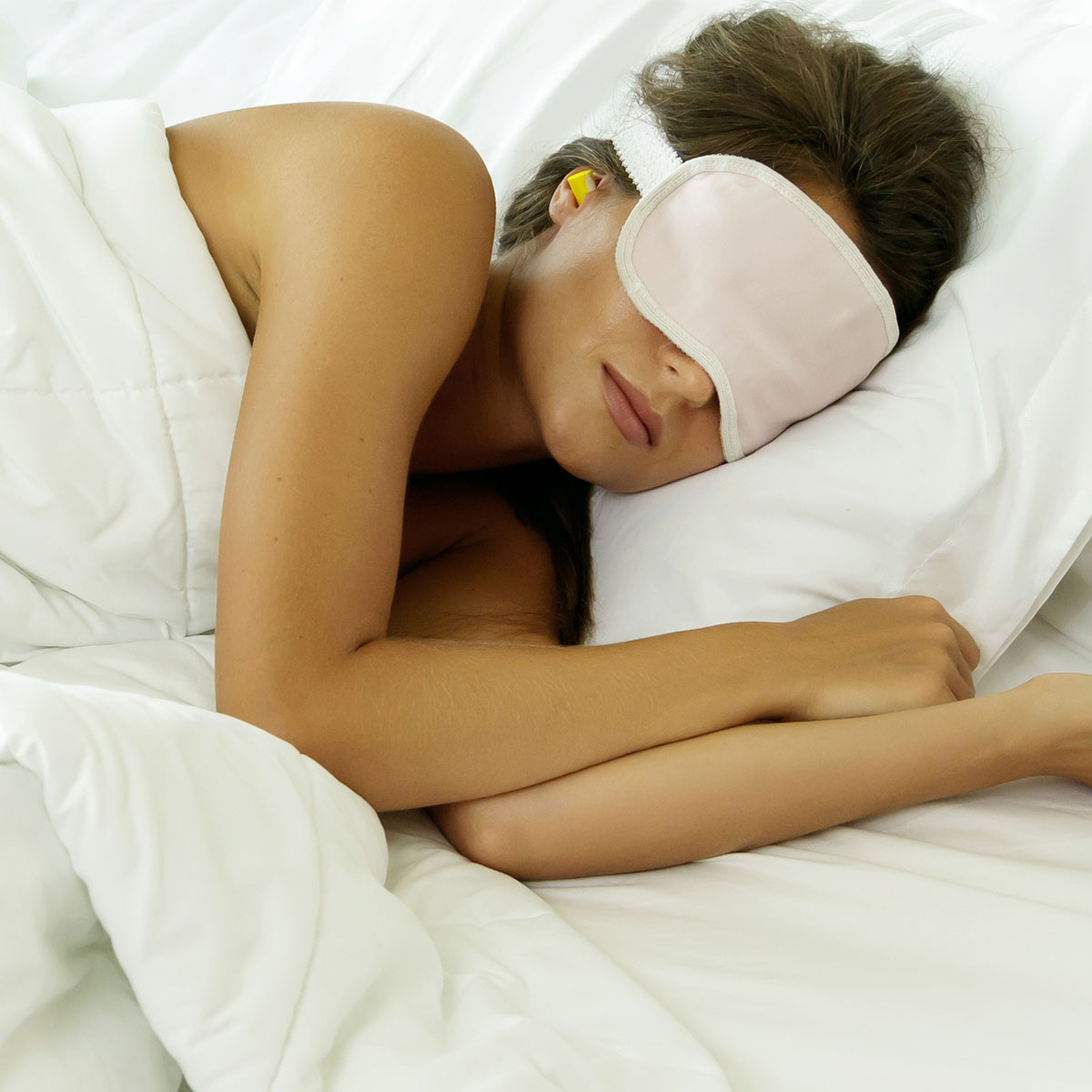Proper rest is so important for your overall health. From brain performance to mood and even gut health, sleep plays a role in so many vital components of wellness—which is why it’s so essential to ensure you’re getting the best, most restful sleep possible each night. And as it turns out, there may be one missing piece you’re overlooking if you’re struggling to fall asleep, stay asleep, and wake up feeling energized. Believe it or not, it has to do with your morning routine.
That’s right: we spoke Dan Ford, sleep psychologist from The Better Sleep Clinic, to learn more about the best habits to improve sleep and energy throughout the day, and he told us that waking up at the same time each morning is crucial. Your wake-up time plays a key role in regulating your circadian rhythm and releasing important hormones for sleep. Learn more below!
READ MORE:
2 Supplements That Practically Guarantee A Better Night’s Sleep, According To Experts
Doctors Say Doing This Simple Thing Every Day Improves Your Sleep Over 50
A Sleep Expert Tells Us How To Sleep Through The Night Over 50
3 Unexpected Reasons You’re Having Trouble Sleeping Through The Night Over 40


Wake up at the same time every day
When you think about good sleep habits, you may think primarily about what you do before you go to bed–i.e. shutting down electronics, unwinding, drinking a relaxing tea, etc. And while all of these things are definitely great habits to promote better sleep, Dr. Ford says that a good wakeup routine can also be a gamechanger. “While every second internet article recommends having a go to sleep routine, the irony is that the most important habit in all of sleep medicine is to get up at the same time every day and try not to vary this by more than 1 hour,” he says. Who knew?!
Dr. Ford tells us that waking up at the same time every day is beneficial for two reasons. “First, when you get up at the same time this helps to anchor your circadian rhythm or body clock,” he explains. This is the “master clock” in your brain that takes cues from the amount of light your body gets in order to regulate the clocks in your body. From there, your body uses these “clocks” to know when to release hormones, as well as when to carry out a number of other important processes. And it’s extremely important to your sleep cycle that you keep these clocks on track. “When you shift your wake-up time, you change the light dark cycle signals to your body clock, throw it out of sync, and the result is similar to jet lag–symptoms of fatigue, nausea, lack of energy etc,” Dr. Ford says. That means that, believe it or not, sleeping in and waking up at a later time than your body is used to could actually cause you to have less energy throughout the day.

But it isn’t just your energy levels that a consistent wake-up time can improve. It can also help you get a better sleep at night. “The reason for this is that the length of time you are awake determines the build-up of the chemical adenosine in your body,” Dr. Ford goes on. “Adenosine build up influences how sleepy you feel and how deep you sleep at night.” And the longer you’re awake, the more adenosine you’re able to build up–and the easier it will be to fall asleep and stay asleep. Alternatively, if you sleep in to try to “catch up on sleep,” your day will be shorter than usual, and you’ll likely have trouble falling asleep–which means you’ll also have less energy in the morning. “Most adults will need around 16-17 hours of wakeful activity before they have sufficient adenosine build up to sleep for a solid 7 hours (the healthiest amount of sleep for an adult),” Dr. Ford notes.
So, as it turns out, a restful, energizing sleep is about more than going to bed at a decent time and having a good relaxation routine. Your morning can make a big difference, too. So be sure to set that alarm clock–and don’t hit the snooze button too many times!


























